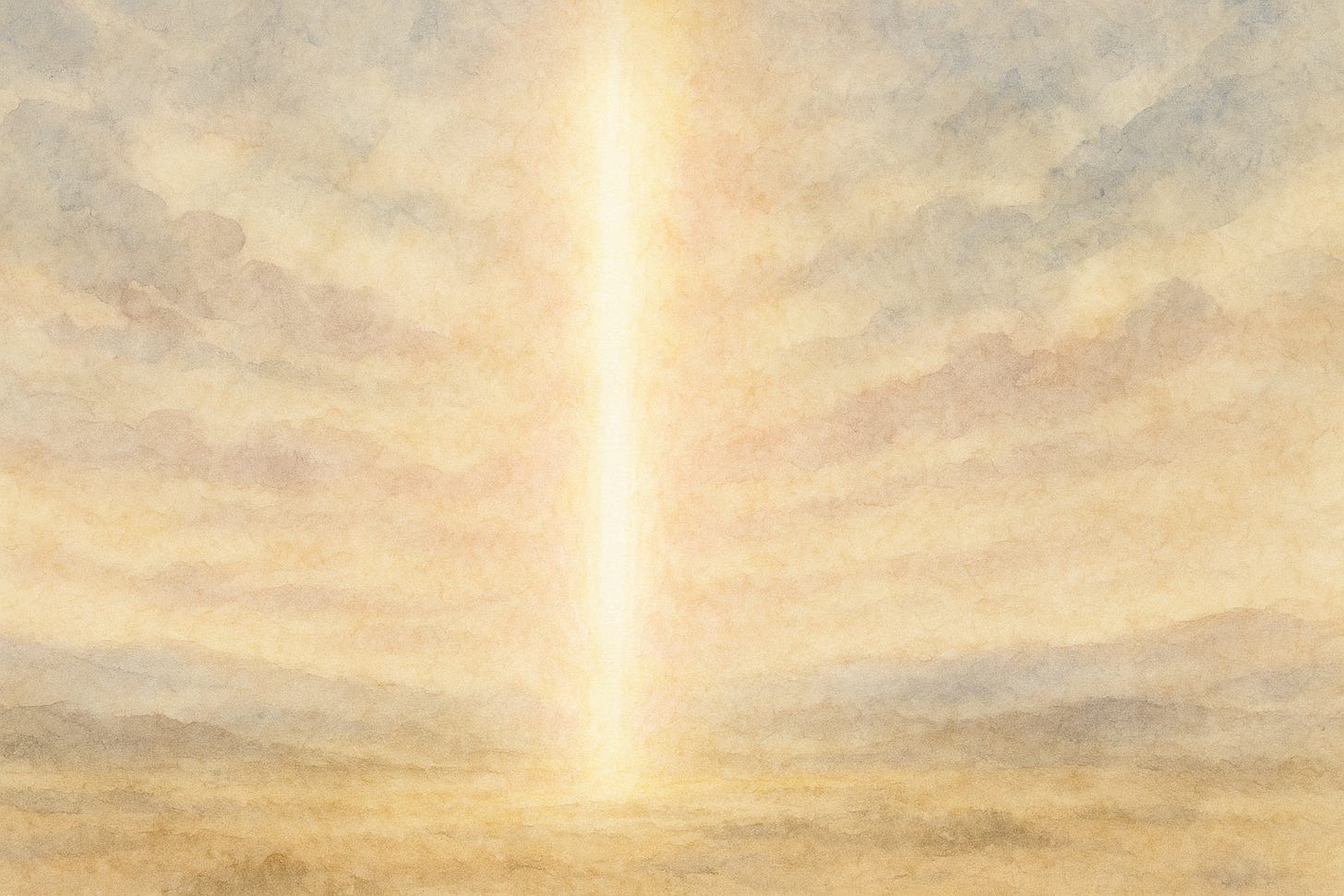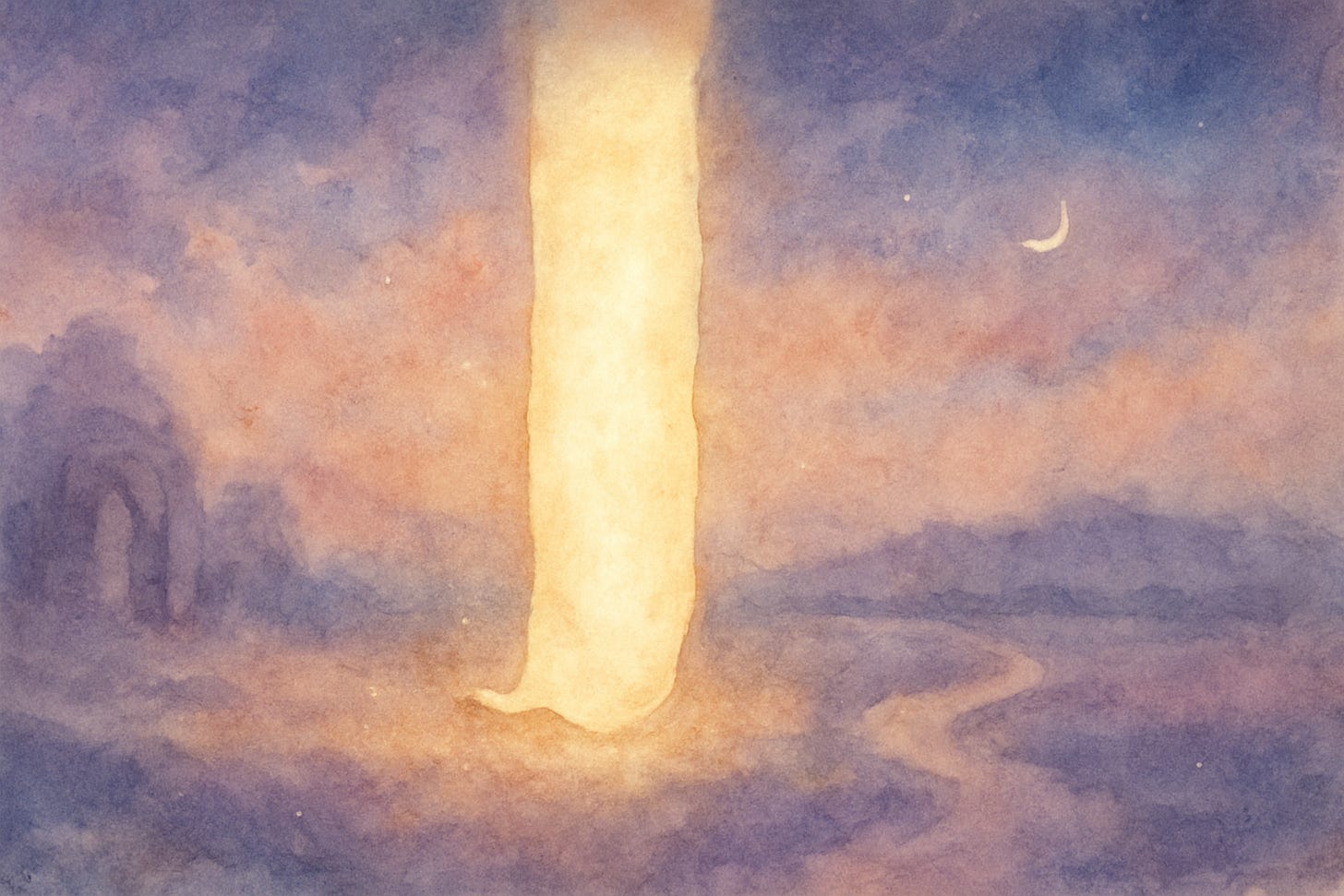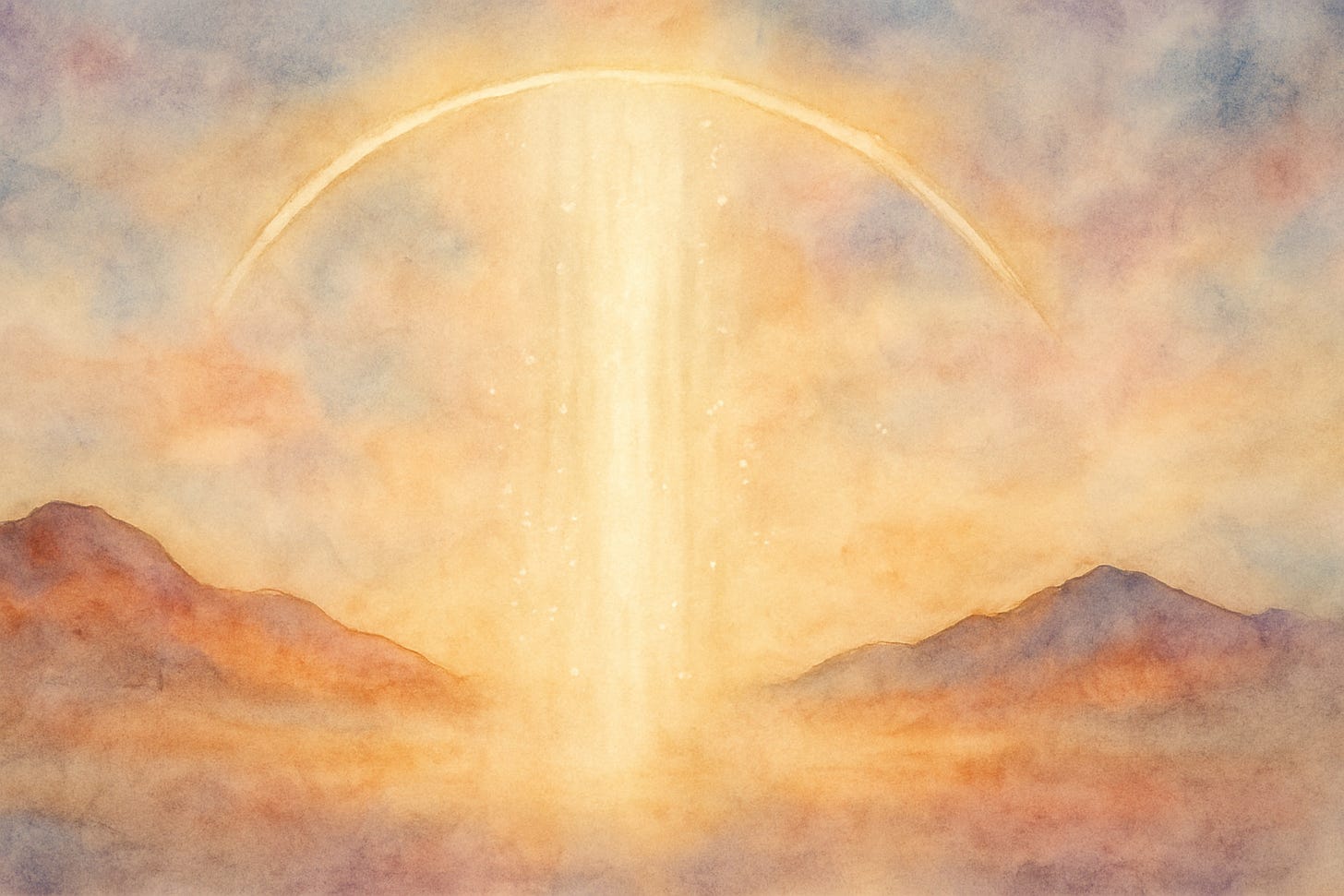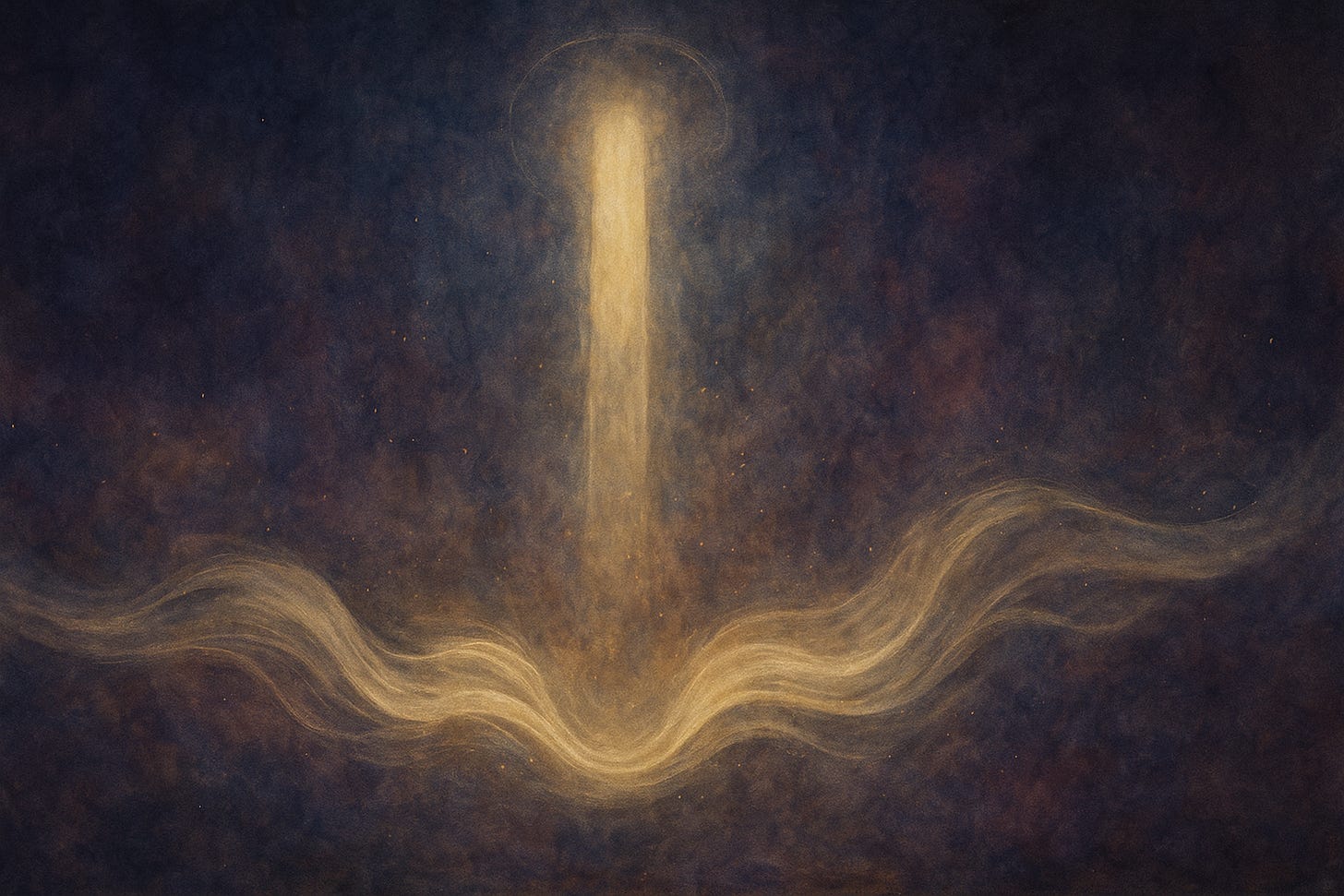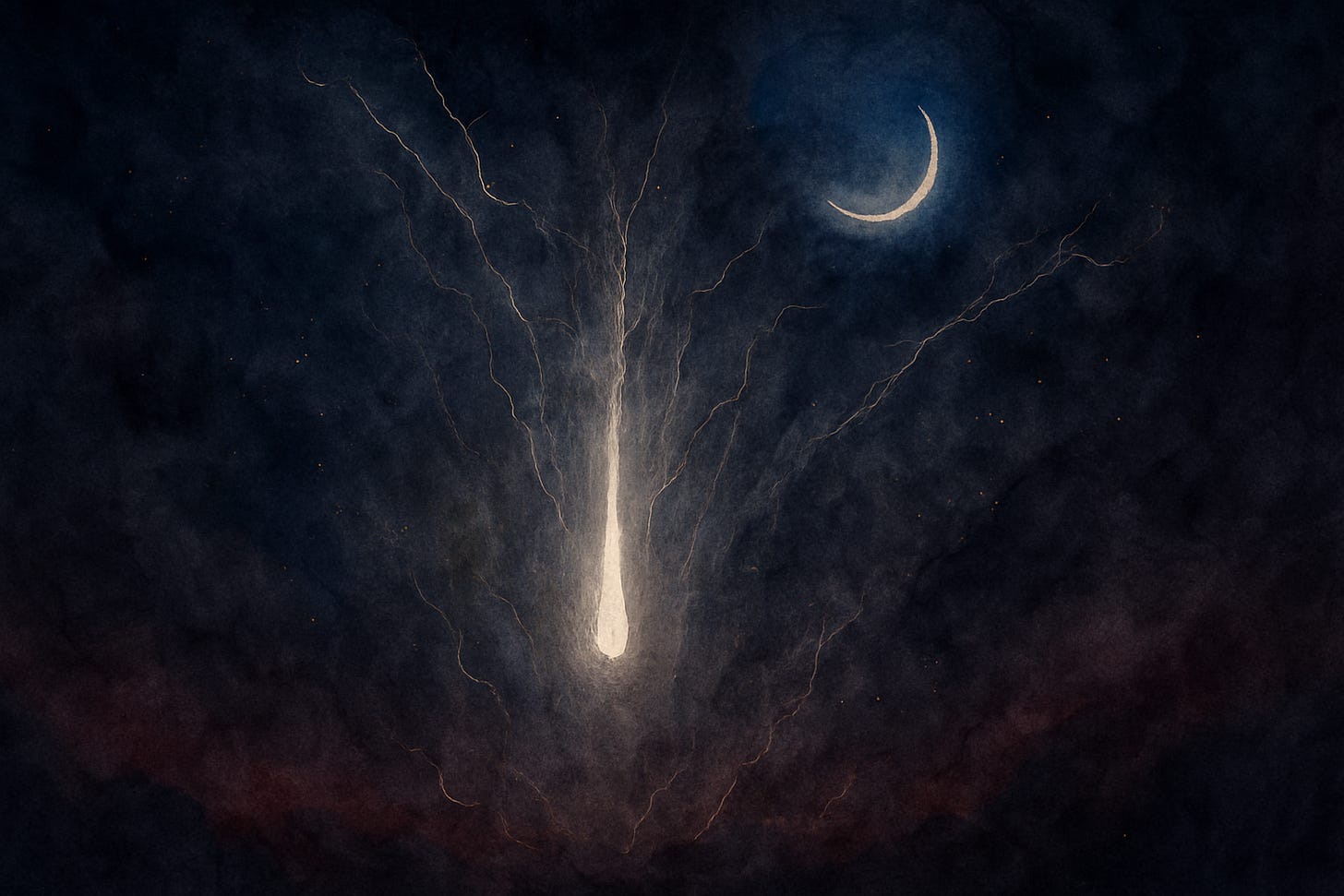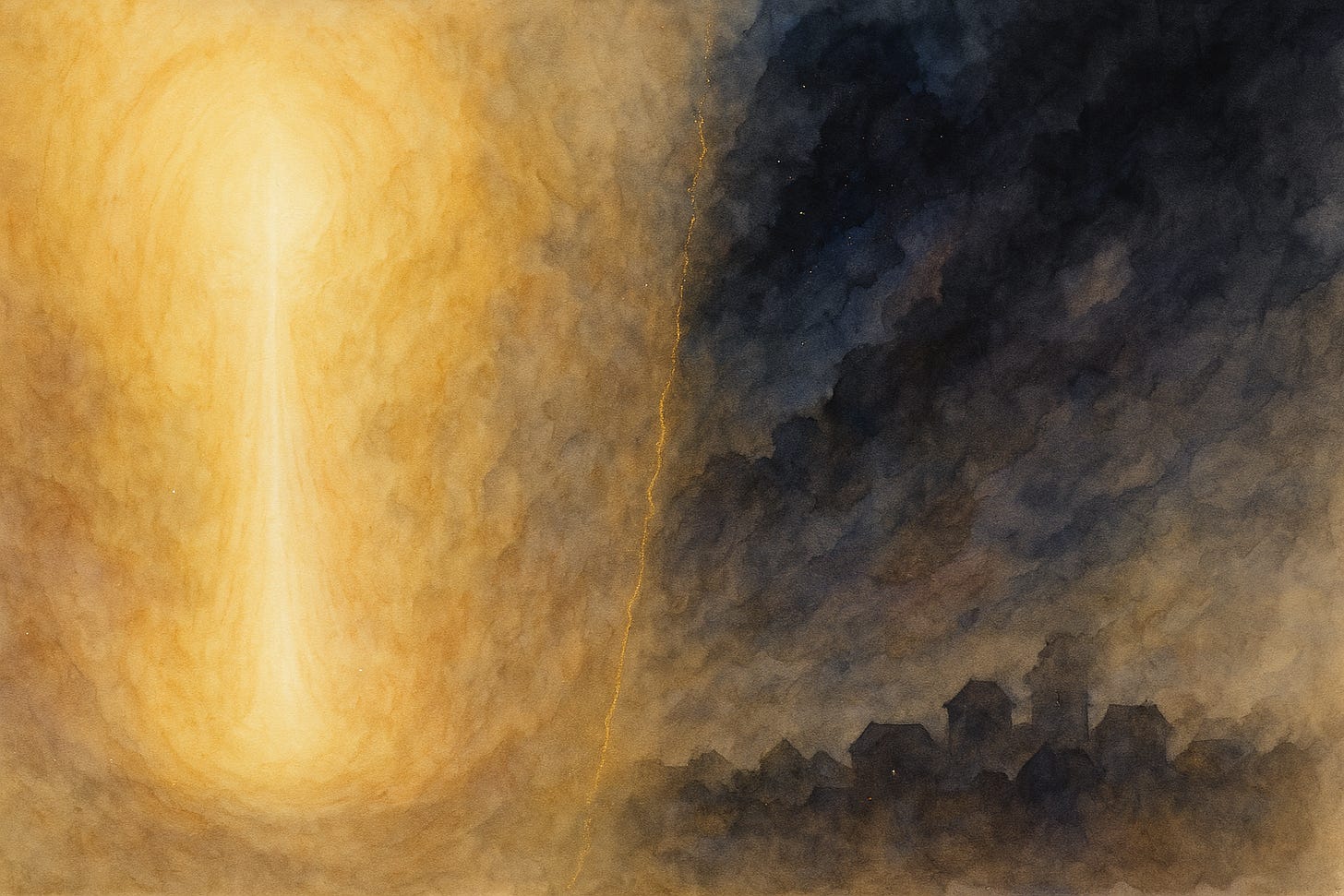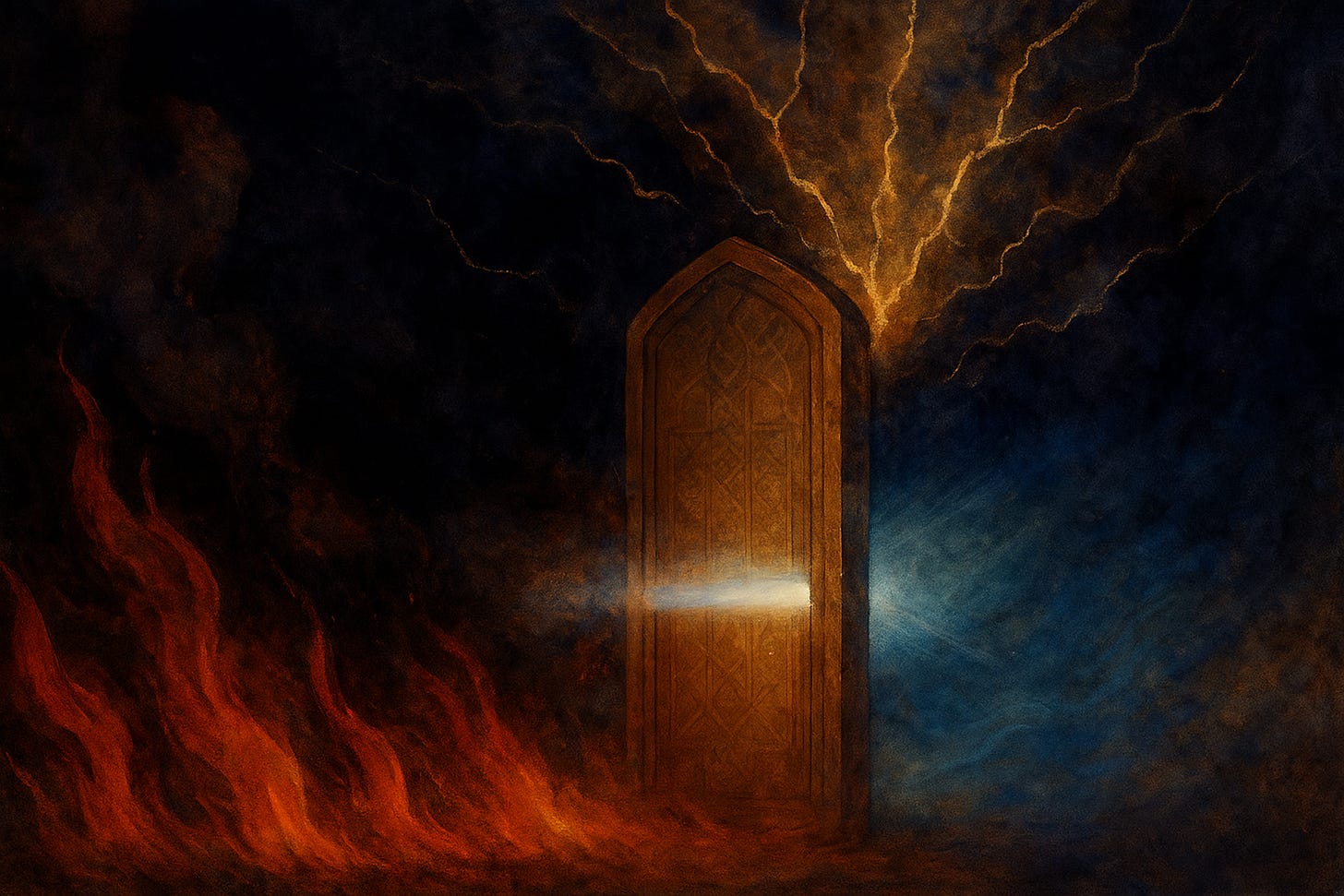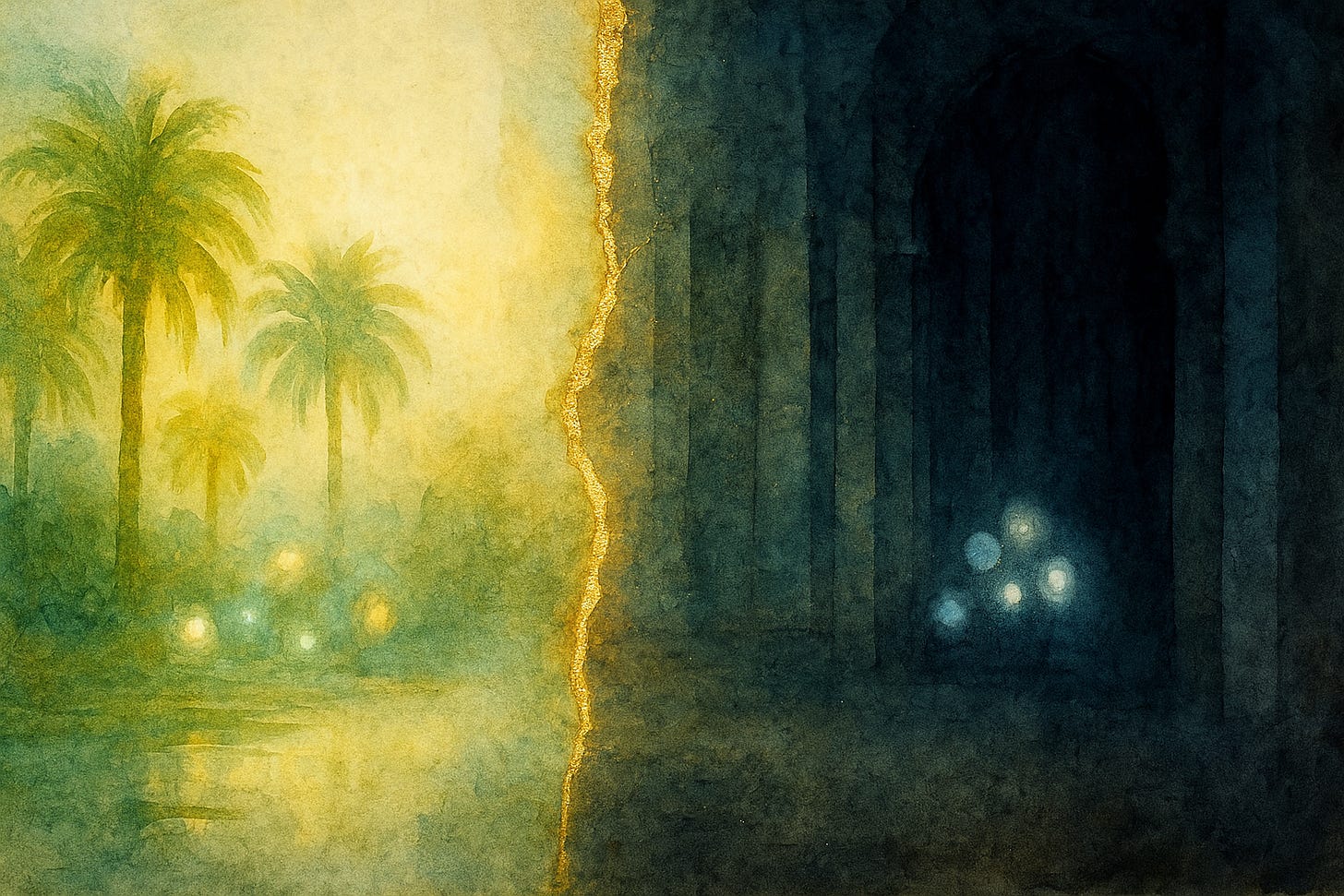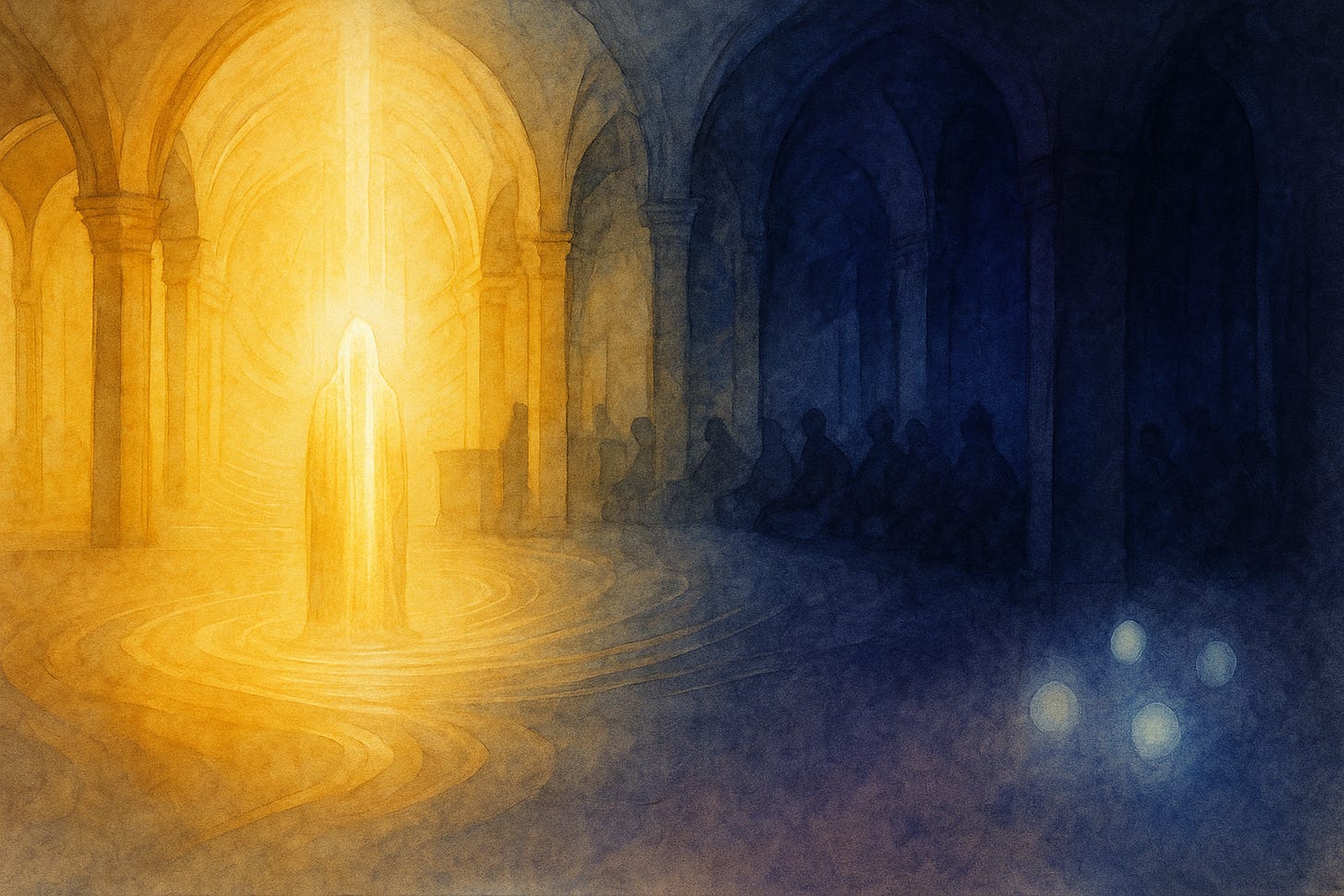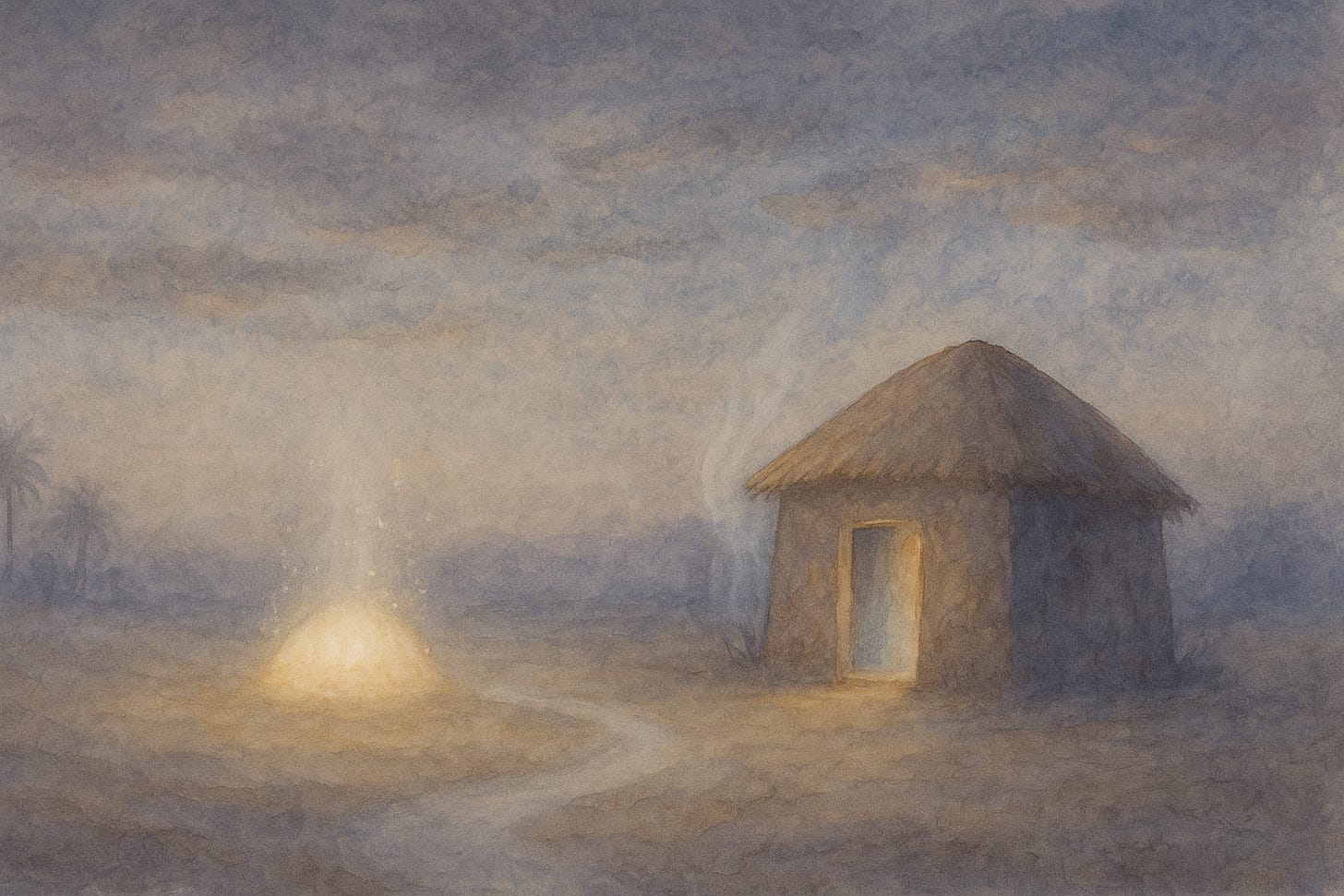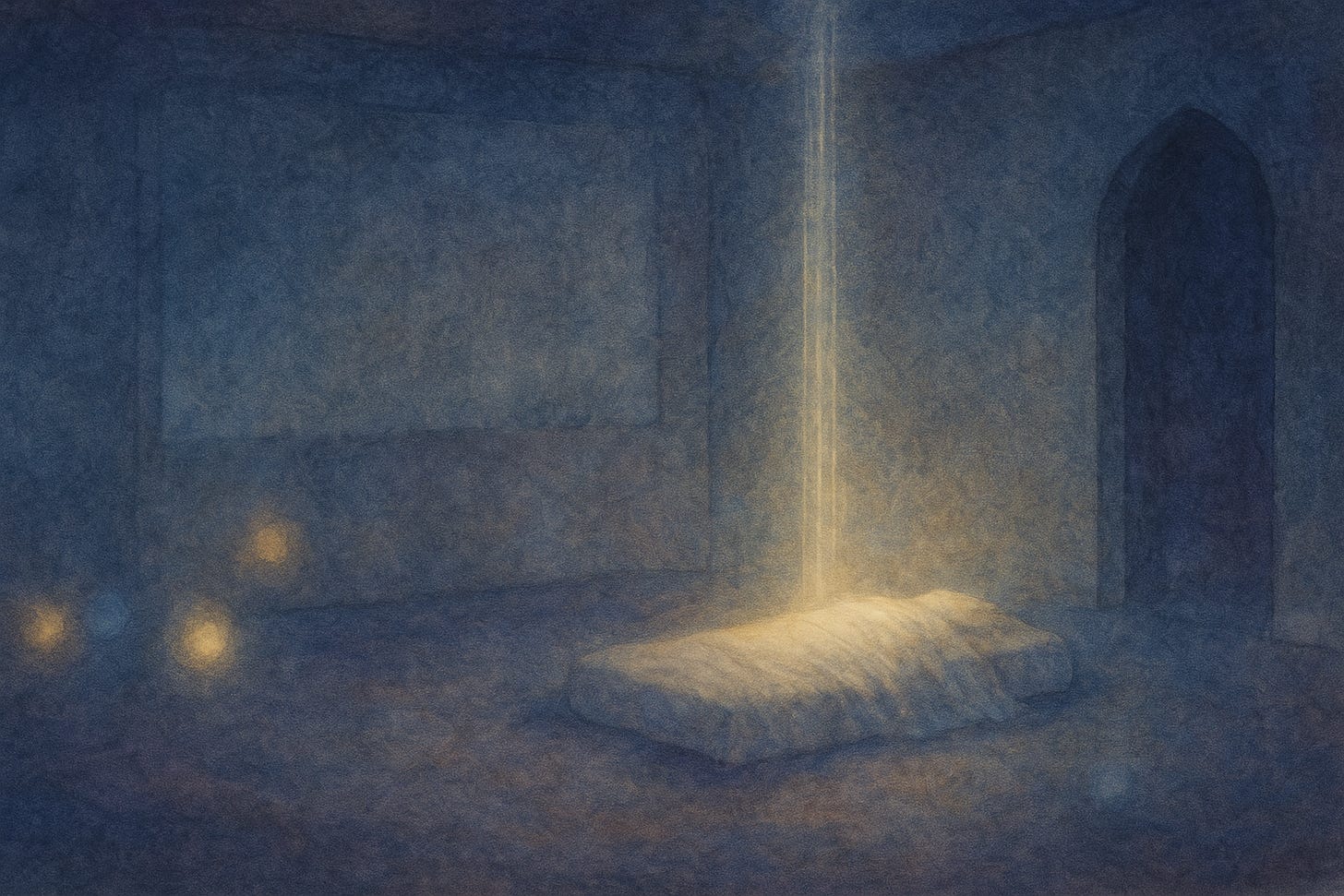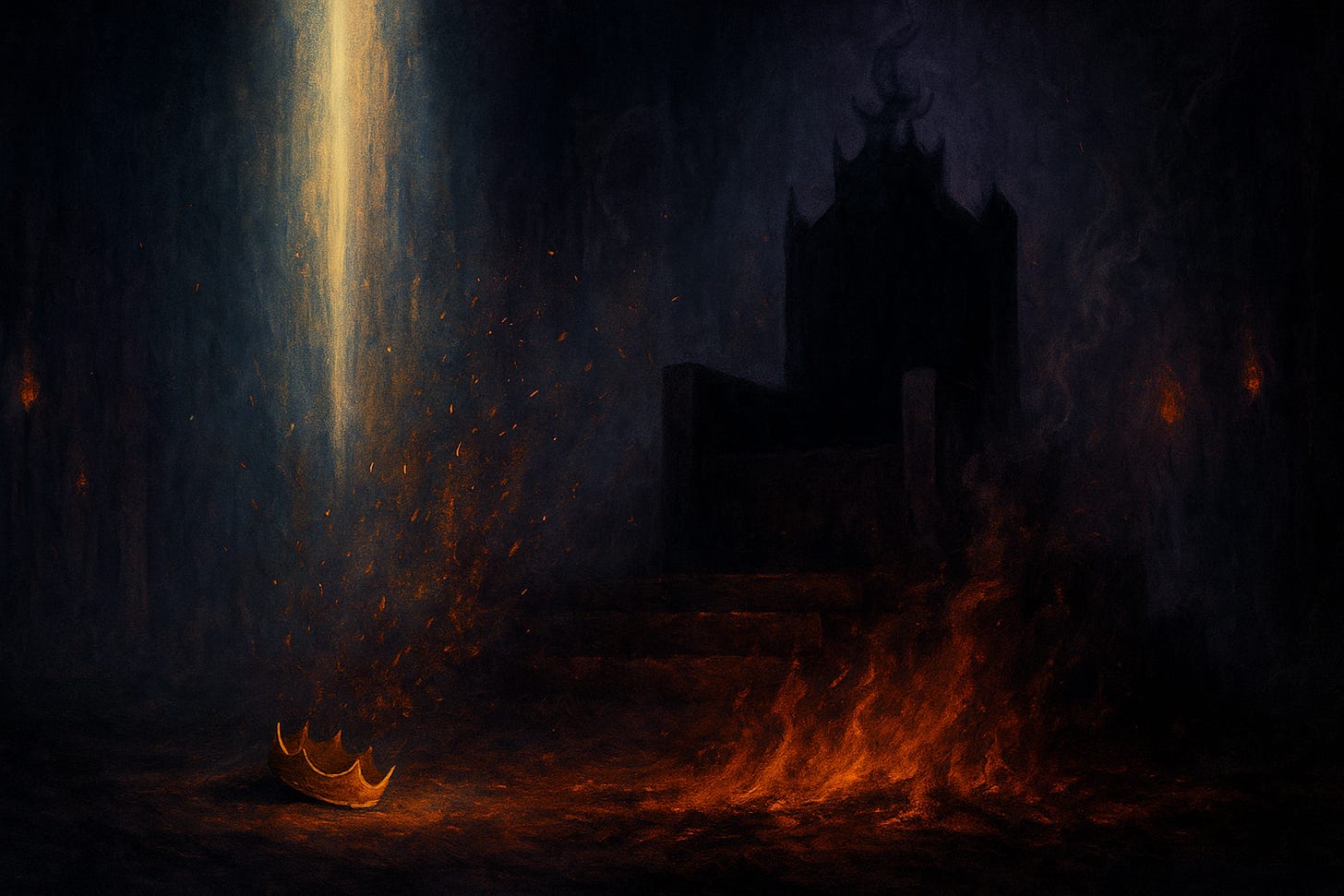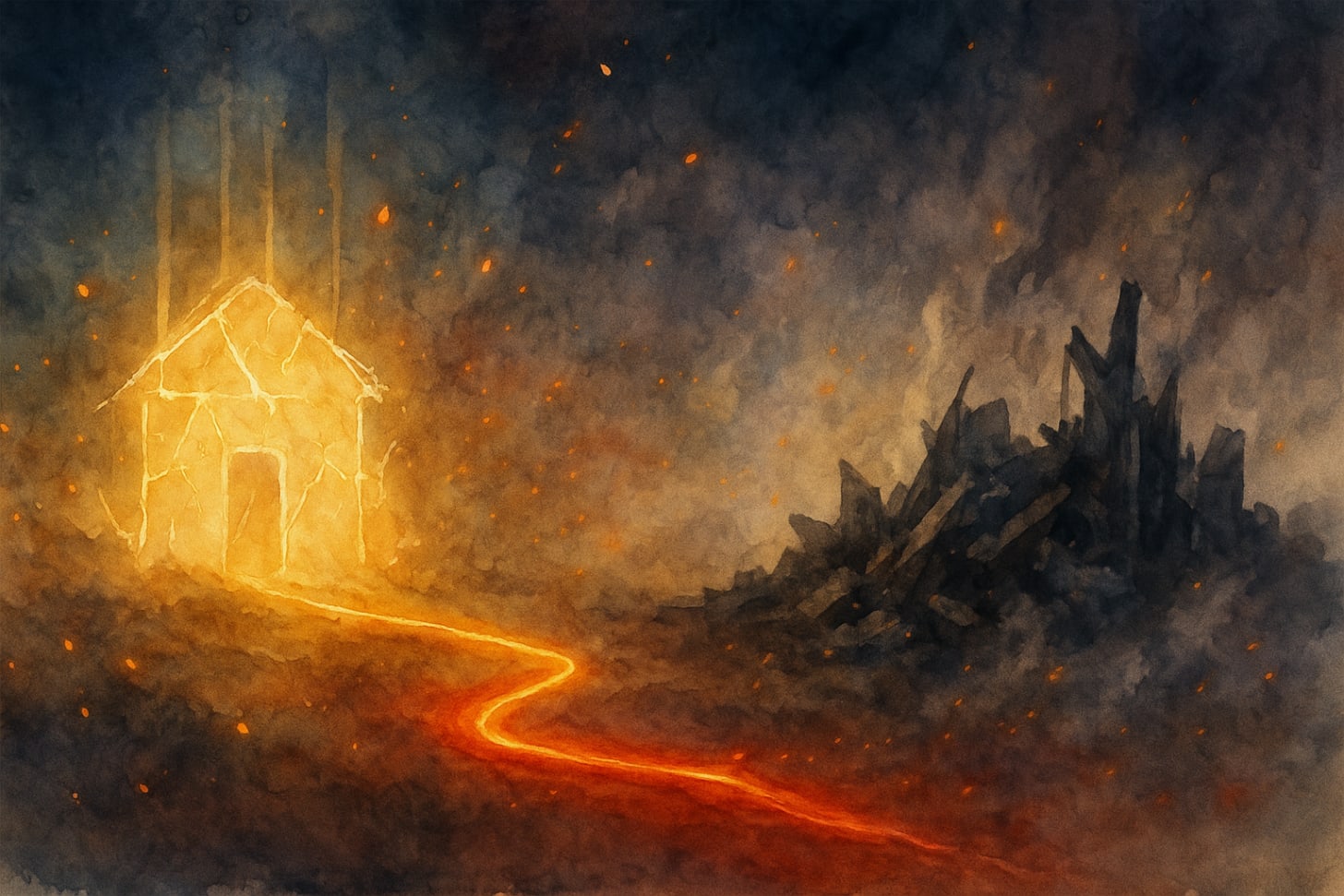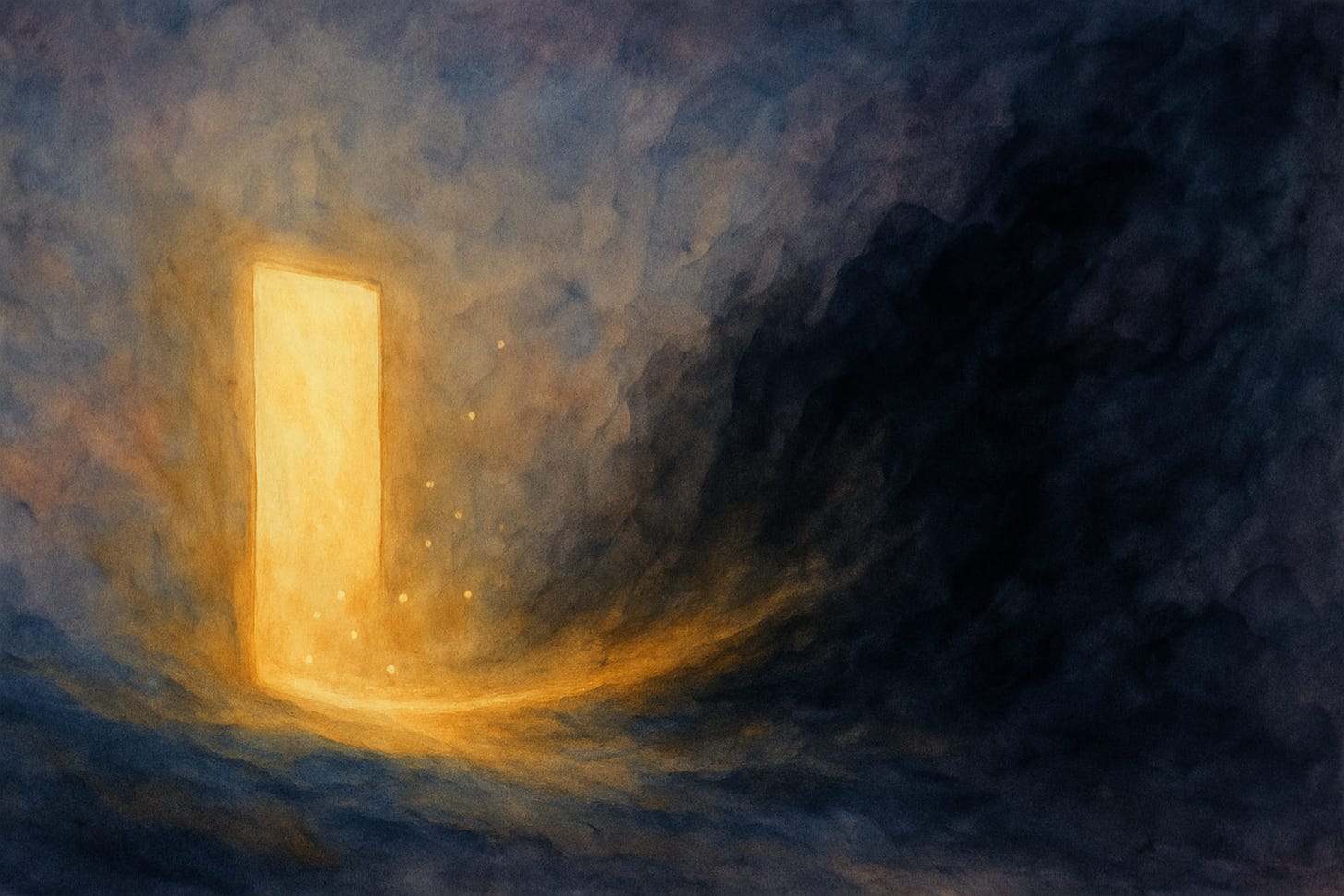The Maqtal of Sayyedah Fatimah al-Zahra: The Lady of Light Who Became the Door to Justice
This is a maqtal (martyrdom narrative - devotional recitation recounting the suffering and sacrifice of the Ahl al-Bayt, the family of Prophet Muhammad). This is for Fatimiyyah 2025/1447
In His Name, the Most High
السَّلَامُ عَلَيْكِ يَا بِنْتَ رَسُولِ اللَّهِ
السَّلَامُ عَلَيْكِ يَا بِنْتَ نَبِيِّ اللَّهِ
السَّلَامُ عَلَيْكِ يَا بِنْتَ حَبِيبِ اللَّهِ
السَّلَامُ عَلَيْكِ يَا أُمَّ الْحَسَنِ وَالْحُسَيْنِ
السَّلَامُ عَلَيْكِ يَا أُمَّ الْأَئِمَّةِ الطَّاهِرِينَPeace be upon you, O daughter of the Messenger of God,
Peace be upon you, O daughter of the Prophet of God,
Peace be upon you, O daughter of the Beloved of God,
Peace be upon you, O mother of Hassan and Husayn,
Peace be upon you, O mother of the Pure Imams.
What is a Maqtal
A maqtal breathes as sacred testimony—a spiritual unveiling of the martyrdoms and sufferings endured by the Prophets and the Ahl al-Bayt (the purified family of the Prophet).
This narration is offered from the most intimate and solemn of perspectives: it is written in the voice of Imam Mahdi, the final inheritor and living witness to these sacred trials.
Through his words, we trace the unbroken lineage of sacrifice.
This narrative of divine trial begins not at Karbala, but with the profound sorrows of his great-grandmother, Sayyedah Fatimah al-Zahra.
Her maqtal, as the primordial guardian of the Imamate., represents the very root of the injustices that would follow.
From her stand, this path of resistance stretches forward to the epic tragedy of her son, Imam Husayn, on the plains of Karbala, and the subsequent trials of Sayyedah Zaynab that culminated in Arbaeen.
To read this maqtal is not merely to recount events of the past.
It is to be invited by the living Imam himself into a covenant with the Ahl al-Bayt, with the Prophets of God, and with the divine legacy of truth and resistance they carried.
Whether detailing the stand of Sayyedah Fatimah at her threshold or the final stand of Imam Husayn at Karbala, their words, their tears, and their sacrifices—as related by their descendant—stir our conscience, awaken our soul, and make our hearts ready for transformation.
The purpose of this narration is not just to inform, but to educate, to pierce the veils of heedlessness, and to etch the message of divine courage into the very soul of the believer.
It is natural—indeed, it is blessed—to weep.
For when one truly contemplates the magnitude of what befell the family of the Prophet—beginning with the injustices against Sayyedah Fatimah al-Zahra and culminating in the tragedy of Karbala—one realises that this was not an isolated event.
It was the culmination of a blow struck not just against the Ahl al-Bayt or the legacy of Prophet Muhammad (peace and blessings be upon him and his family), but against the very spirit of Islam and truth itself.
To hear this in the voice of Imam Mahdi is to understand the continuous and present nature of this sorrow.
Then, the heart can do nothing but break.
Yet this sorrow is not the end—it is the beginning.
The maqtal is not a performance of grief, but a call to rise.
Every tear shed is a covenant.
Every broken heart is a vessel for divine resolve.
The true tribute to Sayyedah Fatimah al-Zahra, to Imam Husayn, to Sayyedah Zaynab al-Kubra, and to the righteous martyrs of every age—a tribute the Imam himself awaits—is that we do not allow their sacrifice to fade into memory.
We must allow it to shape us—so that every mourning heart becomes a fortress against tyranny, and every remembrance becomes a step toward the promised justice of God.
A Note on This Maqtal and Our Muslim Family
This maqtal (martyrdom narrative) is written in the devotional spirit of Fatimiyyah, to commemorate the profound suffering of Sayyedah Fatimah al-Zahra, the daughter of the Prophet Muhammad (peace be upon him and his family).
As Shia, we are guided by our foremost jurists, who have provided a clear path for devotion and dialogue.
The Wali al-Faqih, the Leader of the Islamic Revolution, Imam Khamenei has issued a binding fatwa forbidding (haram) any insult to the symbols or revered figures of our Sunni brothers.
يحرم إهانة رموز إخواننا السنة، فضلاً عن اتهام زوج النبي (ص) بما يخل بشرفها، بل هذا الأمر ممتنع على نساء الأنبياء، خصوصاً سيدهم الرسول الأعظم (ص).
It is forbidden (haram) to insult the symbols of our Sunni brothers, let alone accusing the wife of the Prophet of what taints her honour. Indeed, this matter [of unchastity] is precluded from the wives of the Prophets, especially the master of them all, the Greatest Messenger (peace and blessings be upon him and his family).
— Imam Khamenei, Ruling issued October 2010
Likewise, Grand Ayatollah Sistani has famously guided us: “Do not say ‘our Sunni brothers,’ but rather say ‘our souls.’”
لا تقولوا إخواننا السنة، بل قولوا أنفسنا.
Do not say ‘our Sunni brothers,’ but rather say ‘our souls’ (or ‘our very selves’).
— Ayatullah Sistani, Ruling Issued circa 2006-2007
This text is written in adherence to that spirit.
It recounts historical events from the perspective of the Ahl al-Bayt, a view held as factual and essential within our tradition.
The purpose is not to attack, insult, or create new divisions with our Sunni family, whom we love. As the Qur’an teaches: “No soul shall bear the burden of another”:
قُلْ أَغَيْرَ اللَّهِ أَبْغِي رَبًّا وَهُوَ رَبُّ كُلِّ شَيْءٍ ۚ وَلَا تَكْسِبُ كُلُّ نَفْسٍ إِلَّا عَلَيْهَا ۚ وَلَا تَزِرُ وَازِرَةٌ وِزْرَ أُخْرَىٰ ۚ ثُمَّ إِلَىٰ رَبِّكُم مَّرْجِعُكُمْ فَيُنَبِّئُكُم بِمَا كُنتُمْ فِيهِ تَخْتَلِفُونَ
Say, “Am I to seek a Lord other than God, when He is the Lord of all things?” No soul gets except what it is due, and no soul bears the burdens of another. Then to your Lord is your return, then He will inform you regarding your disputes.
— Qur’an, Surah al-An’am (the Chapter of the Cattle) #6, Verse 164
We do not hold our contemporary brothers and sisters responsible for the tragedies of history.
Rather, this is an expression of our mazlumiyyah (the oppression we have inherited) and a core part of our remembrance.
It is a bearing of witness.
The goal is to connect a foundational injustice—one whose echoes, as the text argues, we still see in the world today—to our own hearts.
It is a call for all who love the Prophet to reflect on justice, truth, and the heavy price paid by his purified family.
On the Recitation of This Maqtal
This maqtal breathes as living testimony, not mere text. It is crafted to be recited - whether in the solitude of private devotion or the gathering of collective mourning.
The Voice
This narrative carries the voice of Imam Mahdi (may our souls be his ransom, and may God hasten his return) himself.
The reciter does not merely read but channels - becoming a vessel for the Hidden Imam’s continuous witness.
Let your voice carry both the weight of inherited grief and the promise of coming justice.
The Rhythm
The words are arranged for poetic recitation, with natural crescendos of emotion and valleys of reflection.
Allow the language to guide your breath - where sentences grow long with anguish, let your voice stretch; where words strike sharp, let them cut clean.
For Private Recitation
In your personal commemoration, you may pause where tears demand it, repeat verses that pierce your heart, and sit with passages that require contemplation.
This is your conversation with the tragedy, your covenant with the martyred.
For Gatherings
When recited in majalis (gatherings), let the communal breath guide the pace.
The collective gasp at injustice, the shared tears at recognition, the unified resolve at the call to action - these become part of the recitation itself.
Musical Accompaniment
While traditionally recited, this maqtal may be accompanied by appropriate musical composition that enhances rather than distracts from its sacred purpose.
The music should serve as the emotional landscape upon which the words walk - mournful where grief demands, urgent where justice calls, resolved where promise speaks.
Our Recitation
We have prepared a complete recitation of this maqtal, available in both video and audio formats accompanying this post.
Our rendition features a composed musical track and vocal interpretation meant to guide but not confine.
Listen to it to understand the emotional arc we envision, then make it your own.
A Living Tradition
We offer our rendition as one interpretation, one breath among many.
Each reciter brings their own understanding, their own grief, their own commitment to these words.
The maqtal lives not in perfect reproduction but in sincere engagement.
Remember: You are not performing grief - you are participating in an unbroken chain of witness that connects Sayyedah Fatima’s door to every door that tyranny approaches today.
Video of the Maqtal
This is a video of the rendition of this maqtal for Sayyedah Fatimah al-Zahra.
Audio of the Maqtal
This is an audio version of the rendition of this maqtal for Sayyedah Fatimah al-Zahra
A Fatimiyyah Maqtal
Voice of the Hidden Son
O you who claim to await me, I speak to you from the shadows your silence has woven— I, the son of the broken rib, I, the heir of the stolen garden, I, the child of tears that became rivers of revolution.
Do you know what you commemorate in these nights?
Do you weep without understanding, mourn without witnessing, strike your chests while your souls slumber in comfort?
Listen well:
My mother was eighteen when the world collapsed.
Eighteen—when empires were built on her grief.
I am the Mahdi, son of Zahra, and I have not forgotten.
Neither the tears, nor the door, nor the fire, nor the darkness that fell when light was extinguished.
When I rise, it will not be only for Karbala.
It will be for Madinah too.
For the first injustice that made all others possible.
When the Sky Went Silent
— Safar 28, Year 11 After Hijra - The Death of the Prophet
They say the Prophet died on a Monday. But I tell you: creation itself held its breath, and only my mother kept it breathing.
She was there when his blessed head grew heavy, when his breath became prayer, when his soul kissed this world goodbye. She held him—her father, her prophet, her only shelter— and whispered:
يَا أَبَتَاهُ أَجَابَ رَبّاً دَعَاهُ يَا أَبَتَاهْ مِنْ جِبْرِيلَ نَنْعَاهُ يَا أَبَتَاهْ إِلَى جَنَّةِ الْفِرْدَوْسِ مَأْوَاهُ
“O my father, he has answered a Lord who called him. O my father, to Gabriel we announce his death. O my father, the Garden of Firdaws is his abode.”
— Al-Majlisi, Bihar al-Anwar, Volume 79, Collection on Narrations on Mournings
— Al-Bukhari, Sahih, Hadeeth 4462
But while she wept over his pure body, while Ali washed him with tears for water, the city was already dividing his inheritance.
Not the coins—those were few. Not the property—that was nothing. But his authority, his pulpit, his position.
They met in Saqifah while his body was still warm.
They voted while his daughter’s tears were still wet.
They declared a successor while the one he chose at Ghadeer was bent over his grave.
Where was the ummah when the house of revelation became the house of sorrow?
The Door of Darkness
Approximately 10 Days After the Prophet’s Passing - The Attack
Here, eternity itself trembles.
Here, even angels look away.
Here, the throne of God shook with rage.
They came with fire.
Let that sentence rest in your hearts:
They came to the house of Fatimah with fire.
When Ali would not pledge allegiance, when my mother would not surrender her home, they brought torches to the door behind which Quran was revealed.
فَقِيلَ لَهُ: يَا هَذَا، إِنَّ فِيهَا فَاطِمَةَ. فَقَالَ: وَإِنْ!
“It was said to him [the one leading the group]: ‘But Fatimah is in this house!’ He replied: ‘Even if!’“
— Al-Dinawari, Al-Imama wa al-Siyasa, Volume 1, Page 30
— Sulaym ibn Qays, Kitab Sulaym ibn Qays al-Hilali, Pages 148-152, Hadeeth 4
— Al-Majlisi, Bihar al-Anwar, Volume 28, Pages 268-271
These words—’Even if!’—carved themselves into the conscience of creation— the willingness to burn the daughter of your Prophet for the sake of power.
They crushed her behind the door.
The door that once opened for Gabriel, the door that angels sought permission to enter, became the weapon that broke her ribs, that killed my brother Mohsin in her womb.
She fell, crying:
يَا أَبَتَاهُ، يَا رَسُولَ اللَّهِ، اُنْظُرْ مَاذَا لَقِينَا بَعْدَكَ
“O my father, O Messenger of God, see what we have faced after you!”
— Al-Dinawari, Al-Imama wa al-Siyasa, Volume 1, Page 30
— Sulaym ibn Qays, Kitab Sulaym ibn Qays al-Hilali, Pages 148-152, Hadeeth 4
— Al-Majlisi, Bihar al-Anwar, Volume 28, Pages 268-271
And where were the Ansar?
Where were the Muhajirun?
Where were those who claimed to die for the Prophet?
Silent.
Their silence then echoes in your silence now.
The silence today when Gaza burns, when Yemen starves, when the innocent are slaughtered in Kashmir, when the oppressed call and find no answer.
The same silence.
The same betrayal.
The same victory of power over truth.
The Theft of the Garden
Shortly after the event of Saqifah - The Usurpation of Fadak
Fadak was not just land. Fadak was her father’s gift, witnessed by heaven, sealed by verses:
وَآتِ ذَا الْقُرْبَىٰ حَقَّهُ
“Give to the near of kin their right”
— Qur’an, Surah al-Isra (the Chapter of the Night Journey) #17, Verse 26
The very Qur’an they claimed to guard became evidence against them.
But they came to her with twisted law, demanding witnesses for what God Himself had witnessed.
“Prophets leave no inheritance,” they claimed.
As if Solomon did not inherit from David.
As if John did not inherit from Zachariah.
As if the Quran was suddenly mute.
She stood in their court— my mother, the part of the Prophet, she who the verse of purification descended for— and they asked her for witnesses.
She brought Ali, Hassan, Husayn, Umm Ayman — the Prophet’s nursemaid, and as per his own words, a woman of Paradise.
They rejected them all.
As if the pure could not testify to purity.
As if the truthful needed proof of truth.
This was not about date palms and water wells.
This was the first blow— to see if she would break, to test if Ali would rise, to measure how much injustice the family of the Prophet would swallow.
And you who celebrate “Islamic governance”— which governance is built on stolen inheritance?
Which caliphate begins with denying the daughter of your Prophet her right?
The Sermon of Clarification
The Mosque of Madinah - The Sermon (Khutbah) of Fadak
She entered their mosque wrapped in her father’s cloak, walking exactly as he used to walk, and when she stood to speak, they thought the Prophet had risen from his grave.
She sought neither pity nor permission—only witness.
She came with proof:
أَيُّهَا النَّاسُ، اِعْلَمُوا أَنِّي فَاطِمَةُ وَأَبِي مُحَمَّدٌ
“O people, know that I am Fatimah, and my father is Muhammad”
— Khutbah al-Fadakiyyah
She recited Quran to those who had forgotten it.
She explained inheritance law to those who had distorted it.
She reminded of Ghadeer to those who feigned amnesia.
Then she turned to the women of Madinah and spoke words that should shake every Muslim home today:
أَصْبَحْتُمْ تَتَرَبَّصُونَ بِنَا الدَّوَائِرَ
“You lie in wait for calamities to befall us”
— Khutbah al-Fadakiyyah
She exposed their crime not with emotion but with evidence, not with tears alone but with tabyeen— the clarification that strips falsehood naked.
But power had already pronounced its verdict.
Truth had become inconvenient to empire.
Power was their religion now.
And today, when your scholars stay silent, when your leaders shake hands with tyrants, when your communities abandon justice for comfort— remember that this began with ignoring Fatimah’s sermon.
The House of Sorrow
Bayt al-Huzn - The Final Days
My mother lived 75 days after the Prophet— some say 95, but what are numbers to measure an infinity of grief?
Ali built her a small house outside Madinah— Bayt al-Huzn, the House of Sorrow— where she could weep without the city complaining, where she could mourn without disturbance.
Every morning she would go to the Prophet’s grave, place her face upon the earth, and whisper:
مَاذَا عَلَى مَنْ شَمَّ تُرْبَةَ أَحْمَدَ أَنْ لَا يَشَمَّ مَدَى الزَّمَانِ غَوَالِيَا
صُبَّتْ عَلَيَّ مَصَائِبُ لَوْ أَنَّهَا صُبَّتْ عَلَى الْأَيَّامِ صِرْنَ لَيَالِيَاWhat harm could befall one who has smelled the dust of Ahmad’s [grave], If they were to never again smell precious perfumes for all of time?
Calamities have been poured upon me that, had they been poured upon the days, They would have turned into nights.— Al-Majlisi, Bihar al-Anwar, Volume 43, Page 174
— Al-Majlisi, Bihar al-Anwar, Volume 79, Page 106
— Ibn Shahr al-Ashub, Manaqib Aal Abi Talib, Volume 1, Page 208
— Al-Irbili, Kashf al-Ghumma Fi Ma’rifat al-Aimmah, Volume 1, Page 493
— Shaykh Abbas al-Qummi, Bayt al-Ahzan, Chapter 4
She wept until the angels wept.
She grieved until the earth grieved.
And still, she never cursed by name, never sought revenge, never turned from God.
This is the patience you misunderstand— not the patience of acceptance, but the patience of witness, the patience that documents for history, the patience that preserves truth for the one who will rise with the sword— for me.
The Night of Departure
The 3rd of Jamadi al-Thani - The Martyrdom
She knew.
She bathed herself, prepared her shroud, gathered her children.
To Hassan and Husayn, she whispered secrets that would echo in Karbala.
To Zaynab, she gave the strength that would shake the throne of Yazid.
To Ali, she spoke her will:
أُوصِيكَ... أَنْ تَدْفِنَنِي لَيْلًا إِذَا هَدَأَتِ الْعُيُونُ وَنَامَتِ الْأَبْصَارُ...
وَلَا يُصَلِّيَنَّ عَلَيَّ أَحَدٌ مِمَّنْ ظَلَمَنِي وَغَصَبَ حَقِّي، وَلَا تَدَعْ أَنْ يُصَلِّيَ عَلَيَّ أَحَدٌ مِنْهُمْI enjoin you... to bury me at night, when the eyes have become still and the sights are asleep.
And let none of those who wronged me and usurped my right pray over me. And do not permit any one of them to attend my [funeral].
— Al-Majlisi, Bihar al-Anwar, Volume 43, Page 192 (also Pages 209-214)
— Al-Irbili, Kashf al-Ghumma Fi Ma’rifat al-Aimmah, Volume 1, Pages 503-504
— Shaykh Abbas al-Qummi, Bayt al-Ahzan, Chapter 5
Then she turned to the Qiblah and spoke to her Lord:
Her last days were a constant prayer, a quiet turning toward her Lord.
Her supplication was a single, focused request:
يَا حَيُّ يَا قَيُّومُ... وَأَلْحِقْنِي بِأَبِي مُحَمَّدٍ
“O the Ever-Living, O the Self-Subsisting... and join me with my father, Muhammad.”
— Shaykh Abbas al-Qummi, Bayt al-Ahzan, Chapter 5
Then, with her prayer answered, she lay down, faced the Qiblah, and placed her hand under her cheek.
She spoke her final words:
إِنِّي مَقْبوضَةٌ الْآنَ... فَلَا يَكْشِفُنِي أَحَدٌ
“I am to be taken now... Let no one uncover me.”
— Al-Majlisi, Bihar al-Anwar, Volume 43, Page 183
— Al-Irbili, Kashf al-Ghumma Fi Ma’rifat al-Aimmah, Volume 1, Page 504
At eighteen years and a few months, my mother returned to her father, returned to the presence of the Lord of Muhammad and Fatimah.
At eighteen— younger than many who read these words— she had lived a lifetime of revelation, an age of suffering, an eternity of patience.
Her grave remains hidden.
Let that truth burn:
The daughter of your Prophet has a grave you cannot find because she did not want you there.
To Those Who Claim Authority
An Indictment from the Hidden Imam
Before I speak of blood that flows still, before I name the daughters of my mother in Palestine and Yemen, let me address those who sit on pulpits my grandfather built, who wear turbans my father blessed, who claim authority my mother died defending.
To the Scholars Who Trade Truth for Comfort:
You parse the details of wudhu while Gaza performs tayammum with its own dust and blood.
You debate the length of beards while the beards of our elders are soaked in tears for their martyred children.
You issue declarations about music while you are deaf to the music of missiles over Sana’a, the symphony of suffering in Kashmir and the ache of the mothers of Bahrain.
Where are your declarations against those who shake hands with the murderers of Muslims? Who normalise with them, while professing to be from the righteous progeny?
Where is your outrage when our sisters are stripped of hijab in prisons you pretend don’t exist?
You know forty narrations about my mother’s tasbih but cannot narrate one condemnation of those who continue to crush her?
Tell me—you who memorised that she died at eighteen—what have you done for the eighteen-year-olds dying today in her name?
What have you done for the foetus murdered for ‘convenience’?
What have you done for the elderly encouraged to die, to save the corrupt regimes?
To the Leaders Who Wear Our Titles:
You call yourselves “Custodians of Holy Sites” while you host those who desecrate Al-Aqsa and murder the women and children.
You declare yourselves “Commanders of the Faithful” while the faithful command you to stop, to speak, to stand—and you sit, silent, counting your gold.
Every throne you protect is built on the foundations of the house they burned.
Every treaty you sign is written with the ink that stole Fadak.
Every silence you purchase is paid with the inheritance of orphans my mother would have sheltered.
To the Preachers Who Perform Our Grief:
You make my mother’s suffering into theatre—professional tears at profitable gatherings.
You narrate the door, the fire, the rib—then you walk out and vote for those who bring doors, fires, and broken ribs to every home.
You curse Shimr once a year but shake hands with a thousand Shimrs daily.
You wear black for my mother but dress your silence in the white of surrender.
Your majalis have become what Saqifah was—a gathering that speaks of justice while justice bleeds outside your doors.
The Question I Pose:
Here is what I ask you, O inheritors of titles without truth:
If my mother appeared at your door tonight—bruised, burned, seeking sanctuary—would you shelter her?
Or would you check first with your governments, your donors, your diplomatic relations?
Would you issue a statement of “deep concern” while she bleeds on your threshold?
Would you call for “both sides to show restraint” while one side holds the door and the other is crushed behind it?
I know your answer because I see it daily in how you treat her children.
The Verdict:
You are not the heirs of Muhammad and Ali.
You are the heirs of those who met at Saqifah.
You are the heirs of those who murdered Husayn in Karbala.
You are not the followers of Zahra.
You are the children of those who brought the fire.
And when I return, I will not be confused by your robes, your turbans, your titles, your wealth, your power, your numbers or your libraries.
I will ask one question:
“When Fatimah’s daughters cried out in this age, did you answer or did you collaborate with their oppressors?”
Your silence today is your signature on the crime of yesterday.
Your cooperation now is your presence at Saqifah then.
The Blood That Speaks
The Present Day - The Continuing Crime
O you who weep for my mother!
Your tears are mere theatre if you are silent while her daughters in Palestine relive her anguish.
You beat your chests for her broken rib while you break the ribs of Yemen with your silence.
You curse those who stole Fadak while you pay taxes to those who steal nations.
You mourn baby Mohsin while the babies of Gaza are pulled from rubble.
My mother’s blood did not dry— it flows in every Palestinian mother’s veins, it speaks in every Lebanese father’s resistance, it cries in every Kashmiri’s chains, it burns in every truthful word spoken against the tyrants you call leaders.
When the women of Jenin, Jerusalem al-Quds, and Hebron stand before tanks, they are Fatimah at the door.
When the mothers of Dahiyeh pull their children from ruins, they are Fatimah after the fire.
When the daughters of Kashmir disappear into darkness, they are Fatimah whose grave you’ll never find.
And you dare claim you’re waiting for me?
I am waiting for you.
For you to fulfil your covenant.
So that my Lord permits my return.
I am waiting for you, are you truly waiting for me?
Do you understand that?
Do you not know the depth of your treason?
Of your sin?
Every day I am barred from returning, is a day that you have failed in your covenant.
I am the son of the woman you abandoned!
Is it surprising that you abandon me?
While professing to yearn for me?
I am the heir of the right you surrendered!
Is it then surprising, that you surrender to the taghut, to the tyrants, to the oppressors and Satans in human form, in the name of ease and ‘conformity’?
I am the child of the grief you caused!
When I rise, I will not ask who you followed.
I will ask:
What did you do when they burned the house of Zahra?
Not then—NOW.
For they burn it every day in every home they demolish, in every mosque they destroy, in every woman, man and child they oppress and terrorise in the name of the Islam my mother died defending.
The Promise of Return
The Vow of the Hidden Son
I make this vow upon my mother’s hidden grave: I will return.
Not for glory, not for power, but for every tear she shed that went uncomforted, for every right she claimed that went unheard, for every truth she spoke that went unheeded.
I will stand where she stood in the mosque and complete her sermon.
I will walk where she walked to her father’s grave and tell him:
“The trust is fulfilled.”
I will find her hidden grave—I who know where it lies— and I will weep there as she wept for her father.
But first, I will restore what was stolen.
Not just Fadak— but dignity, justice, the right of the oppressed to speak, the right of women to inherit, the right of truth to triumph over falsehood.
Every Fatimah of this age—every woman whose dignity is bartered for power, every mother who lost her Mohsin, every daughter whose inheritance was stolen, every sister whose house was burned— will find in me not just an avenger, but a son.
For I am not just the Mahdi. I am the Yusuf of Zahra—the son of the Lady of Light.
And light, no matter how long darkness seems to reign, always returns.
The Call to Action
To Those Who Claim to Love Zahra
If you truly love my mother, then BE her voice today.
When they come to burn the houses of truth, stand at the door.
When they steal the inheritance of the oppressed, speak in the mosque.
When they crush the weak with their power, document their crimes.
When they silence the daughters of Zahra, become their tongues.
For know this:
Everyone who stands at a door to protect the innocent stands with Fatimah.
Everyone who speaks truth in the face of power continues her sermon.
Everyone who refuses to let oppression be normalised keeps her grave hidden from the hypocrites.
And everyone who stays silent— who shakes the hand that crushed her— who prays behind those who burned her house— who normalises the theft of Fadak in every age— you are not waiting for me.
You are hiding from me.
For when I come, I come as the son of Zahra, and I will ask you:
“Where were you when they broke my mother’s rib?”
Not in history.
Today.
Where were you today?
The Eternal Witness
Until that dawn when I emerge, know that I walk among you, visiting her hidden grave, weeping for her tears, counting those who remember and those who forget.
In every majlis where her name brings tears, I am there.
In every home where her example brings strength, I am there.
In every heart that breaks for injustice as hers broke, I am there.
But I am also watching:
Those who use her name for division, those who weep for her but oppress their wives, those who curse her enemies but become them, those who commemorate her death but kill what she lived for.
Remember:
She did not die for you to merely mourn.
She died for you to rise.
She did not suffer for you to be comfortable.
She suffered for you to be truthful.
She did not resist for you to surrender.
She resisted for you to continue.
Until we meet at her hidden grave— you and I and the few who remained faithful— carry her light.
For I am coming, and I carry the list of those who stood at doors, and the list of those who brought the fire.
Choose which list you want your name upon.
وَسَيَعْلَمُ الَّذِينَ ظَلَمُوا أَيَّ مُنقَلَبٍ يَنقَلِبُونَ
“And those who have oppressed shall know to what final place they will return.”
— Qur’an, Surah al-Shu’ara (the Chapter of the Poets) #26, Verse 227
That final place of return is my day.
But until that day, my lament is eternal.
Every breath I take is this call.
I stand where no one else can stand, and I speak the words of the son to the mother:
السَّلَامُ عَلَيْكِ يَا أُمَّاهُ
السَّلَامُ عَلَيْكِ يَا مَظْلُومَةُ
السَّلَامُ عَلَيْكِ يَا شَهِيدَةُ
إِنَّا لِلَّهِ وَإِنَّا إِلَيْهِ رَاجِعُونَPeace be upon you, O my mother.
Peace be upon you, O oppressed one.
Peace be upon you, O martyr.
Indeed, we belong to God, and to Him we return.
And I, the son of the wronged, am the appointed return.
And from Him alone is all ability and He has authority over all things.


